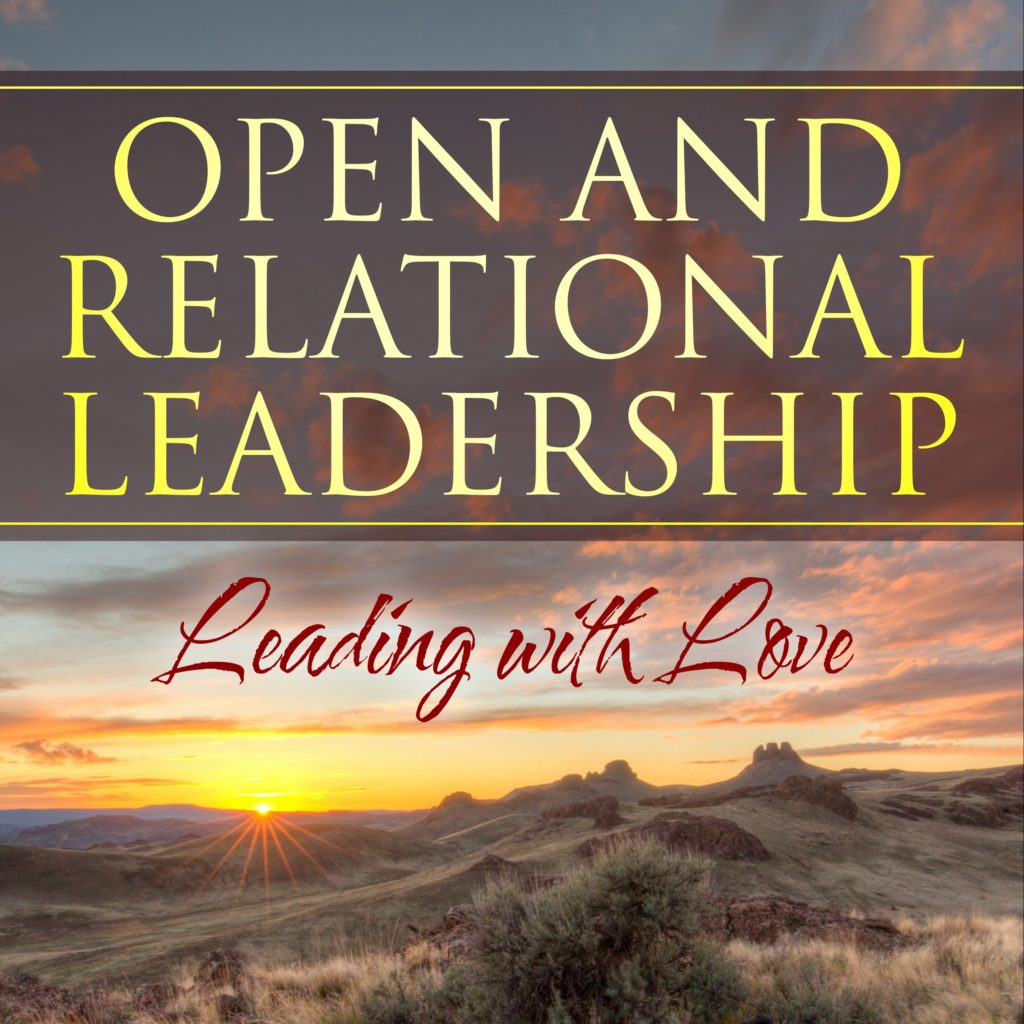Leading With Love

Leadership studies have blossomed in recent decades.
Researchers and writers take recent developments in science, economics, medicine, or politics as their guide when advancing theories in leadership. Others seek insights from great leaders of yesteryear, presidents and prime ministers, coaches, or titans of industry today.
Leadership books from faith perspectives are also available. Many pick a sacred scripture or story from which to draw their primary leadership principles. Others look to great faith leaders for inspiration. Some explain and expand the virtues or gifts in light of leadership.
In Open and Relational Leadership, we and our nearly 60 co-contributors offer a unique book to the leadership landscape. Essays in the book explore leadership from a particular theological perspective: open and relational theology.
Open and relational theology has many dimensions. But at its core are these ideas:
1. God is relational, which means God engages us in giving and receiving love.
2. Creatures and creation are relational, which means we all affect one another.
3. The future is not predetermined but open, which means our choices and decisions matter.
In light of these ideas, contributors to this Open and Relational Leadership ask questions like, What would it mean to lead like a God who is open, relational, and loving? What does leadership look like in an open and relational world with open and relational people? What “style” of leadership fits this view? And so on.
Readers will be surprised by the answers chapter writers give to questions like these. Some answers upend long-held views of hierarchy, tit-for-tat exchange, separated, or controlling leadership. Those answers prompt us to wonder what good leaders might be like and do. They also might prompt us to wonder what it means to be a good follower, community member, or creature in the earth household.
This is the kind of book readers will study, discuss, and share. We hope groups, organizations, leadership teams, and other communities explore these ideas together. The principles and insights are invaluable. In fact, we’re proud to be associated with this helpful contribution to contemporary leadership studies.
This book will make a real difference. Consider getting a copy for yourself or for a leader you know!
Editors Roland Hearn, Sheri D. Kling, and Thomas Jay Oord
